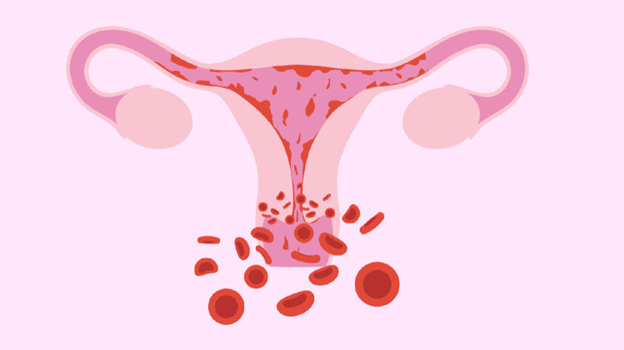Menorrhagia is the medical term for heavy menstrual bleeding that disrupts daily life. Unlike normal menstrual bleeding, which typically lasts 4-5 days with a moderate flow, menorrhagia involves prolonged menstrual bleeding and excessive blood loss. While a normal period might use three to six pads or tampons a day, with menorrhagia, this can double due to heavy bleeding. This condition not only drains physical energy but also impacts emotional well-being, leading to stress and anxiety.
Statistics indicate that menorrhagia affects about 1 in 20 women of childbearing age. Despite its prevalence, many people don’t seek treatment due to a lack of information or embarrassment. However, addressing such issues is crucial for improving quality of life. Consulting with healthcare providers helps in understanding the heavy period meaning, its implications, and its treatments. Educating oneself about menorrhagia is the first step towards managing it effectively.
Recognizing and addressing menorrhagia causes through medical intervention or lifestyle changes can significantly help in normalizing daily activities that heavy menstrual bleeding disrupts.
Identifying Symptoms of Menorrhagia
Menorrhagia bleeding is characterized by soaking through one or more sanitary products every hour for several consecutive hours. This excessive bleeding might require changing during the night, which is a distinct sign of heavy menses. Arm yourself with knowledge so you can interpret these signs effectively.
Secondary symptoms include strong fatigue—a result of significant blood loss—leading to anemia. This condition might cause dizziness or weakness, highlighting how serious heavy bleeding menorrhagia can become. Beyond the physical discomfort, the mental toll is considerable. It requires open dialogue to combat the embarrassment and improve emotional well-being. Talking about profuse menstrual bleeding with healthcare providers or support groups can foster an environment of understanding and support.
Living openly with menorrhagia heavy bleeding helps normalize conversations about this common issue, encouraging more women and men to understand its implications and seek timely help when needed.
Exploring the Causes Behind Menorrhagia
There are several menorrhagia causes, both medical and personal. Hormonal imbalances, uterine fibroids, and polyps often top the list. Structural issues within the uterus or hormonal imbalances are primary triggers for heavy period and big blood clots.
The PALM-COEIN system is a helpful guide in categorizing reasons for heavy period. It breaks down causes into Polyps, Adenomyosis, Leiomyoma (fibroids), and Malignancy, with non-structural outlets including blood clotting disorders and thyroid issues.
Personal factors like stress, diet, and exercise also influence heavy periods causes. For instance, changes in stress levels can alter hormone production, exacerbating menorrhagia symptoms. Awareness and proper strategy for identifying these issues are crucial.
Understanding the causes of menometrorrhagia aids in identifying triggers specific to each individual. This provides a solid foundation for directing appropriate menorrhagia treatment tailored to each person’s needs.
Struggling with Heavy Periods?
If you’re experiencing heavy bleeding during your periods (menorrhagia), it’s important to get the right care. At Aditya Hospitals – Medchal, we specialize in diagnosing and treating conditions like menorrhagia, helping you regain control of your health.
Don’t let heavy periods hold you back—schedule a consultation today at Aditya Hospitals and take the first step toward a healthier, more comfortable life!
Pathways to Relief: Menorrhagia Treatment Options
Managing menorrhagia requires a mix of medical treatments and lifestyle adjustments. Traditional medical solutions include:
- Hormonal Treatments: These can regulate menstrual cycles and reduce bleeding.
- NSAIDs (Non-steroidal Anti-inflammatory Drugs): Such as ibuprofen, which can alleviate pain and reduce blood loss.
- Surgical Options: In severe cases, procedures like endometrial ablation or hysterectomy might be necessary.
In recent years, innovative research into personalized medicine offers promising pathways. Techniques like targeted hormonal therapy show potential in addressing individual variances in prolonged menstrual bleeding.
Lifestyle changes significantly improve symptoms and quality of life as well:
- Exercise: Regular physical activity helps regulate hormonal balance.
- Nutrition: Consuming iron-rich foods counteracts the effects of anemia.
Exploring home remedies is also beneficial. Cultural treatments like Ayurvedic treatment for menorrhagia or homeopathic medicine for menorrhagia present holistic approaches that some find effective.
Knowing when to seek professional help is vital. Consider consulting a healthcare provider if heavy periods with clots persist, are painful, or deeply affect your quality of life. Monitoring blood loss from heavy period and communicating openly with doctors ensures you’re on the right path to relief.
Living a Fuller Life with Menorrhagia
Navigating life with heavy bleeding menorrhagia means equipping yourself with practical strategies. Women can switch to high absorbency products or period-proof underwear to manage heavy period bleeding comfortably.
Daily adjustments can ease the impact of heavy periods with blood clots. Products like menstrual cups are gaining popularity for managing big clots heavy period, offering convenience and confidence during active days.
Breaking societal stigma associated with heavy period flow is challenging but necessary. By creating open dialogues, awareness can alleviate psychological pressures linked to this common condition.
Menorrhagia is prevalent, affecting millions, but it is also manageable with the right knowledge and support system in place. Implementing effective strategies and treatments not only addresses the heavy period flow causes but also promises a smoother daily experience. Remember, while this condition can be demanding, support networks and treatment options ensure it does not limit leading a fulfilling life.


